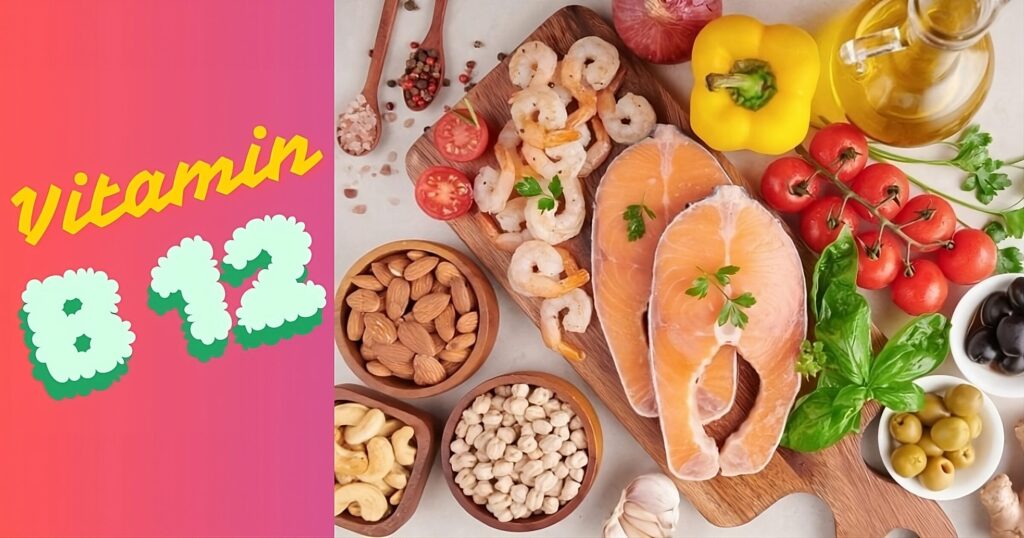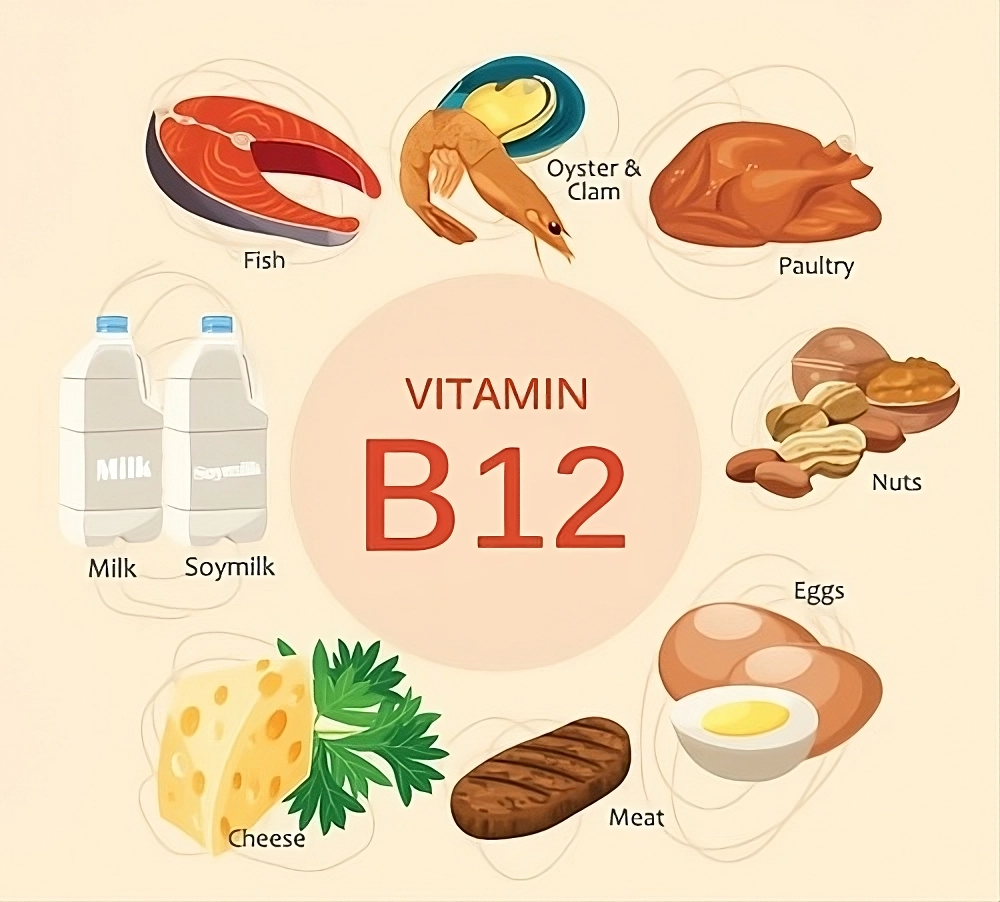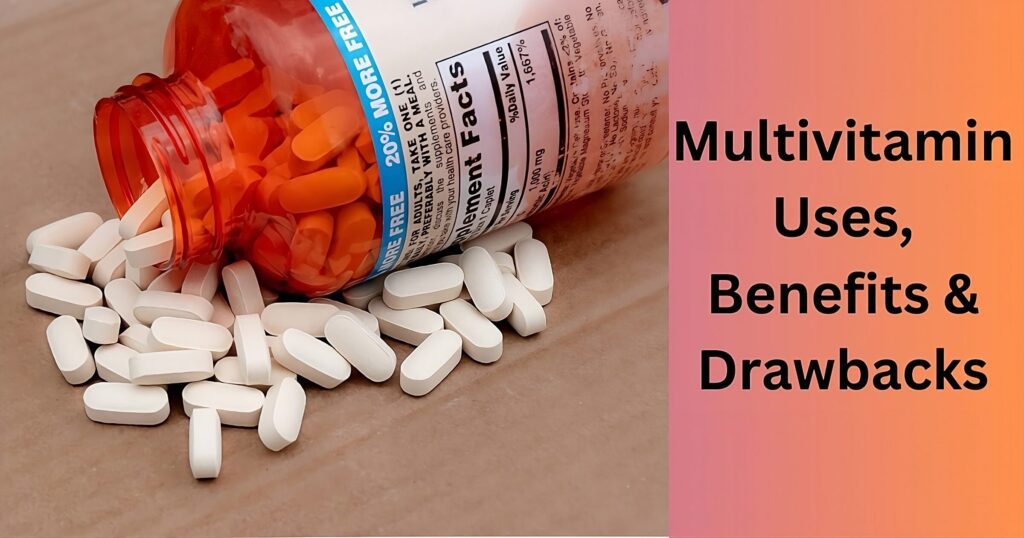Vitamin B12
Dear Readers, welcome to My Health Tips Blog. In this article, we will explore in detail the benefits, sources, and deficiency symptoms of vitamin B12. Nowadays, many people use vitamin B12, and there are numerous options available on the internet. Before delving into the details of vitamin B12, let me share a bit of my own experience.
Prior to 2024, I had never used vitamin B12. However, due to health issues in 2024, I started taking vitamin B12 tablets prescribed by my doctor. Initially, I didn’t notice much difference. However, after consistently using them for 25-30 days, I began to see some improvements in my health. Therefore, I thought why not share with you all about vitamin B12’s benefits, sources, and deficiency symptoms.
Through this blog, I want to inform you all about vitamin B12 and its pros and cons so that you can use it correctly without experiencing any harm.

Vitamin B12, also known as cobalamin, is a vital nutrient essential for maintaining good health. It plays a crucial role in various bodily functions, including DNA synthesis, red blood cell formation, and neurological function. Despite its importance, many people are unaware of its benefits and the potential health risks associated with deficiency. This article explores the benefits of vitamin B12, its dietary sources, symptoms of deficiency, and how to ensure you get enough of this essential nutrient.
The Benefits of Vitamin B12
1. Supports Red Blood Cell Formation and Anemia Prevention
Vitamin B12 is essential for producing healthy red blood cells. Without sufficient B12, red blood cells can become large and irregular, leading to a condition known as megaloblastic anemia. This condition can cause symptoms such as fatigue, weakness, and shortness of breath.
2. Boosts Energy Levels
One of the most notable benefits of vitamin B12 is its role in energy production. B12 helps convert carbohydrates into glucose, which the body uses for energy. Adequate levels of this vitamin can help reduce feelings of tiredness and lethargy.
3. Supports Brain Health
Vitamin B12 is crucial for maintaining healthy nerve cells and producing neurotransmitters that support cognitive function. Adequate B12 levels have been linked to improved memory and a lower risk of neurodegenerative diseases such as Alzheimer’s.
4. Aids in DNA Synthesis
Vitamin B12 plays a key role in DNA synthesis and repair. This function is vital for cell division and the maintenance of genetic material, making it essential for overall cellular health.
5. Promotes Heart Health
Vitamin B12 helps lower levels of homocysteine, an amino acid associated with an increased risk of heart disease. By maintaining healthy homocysteine levels, B12 can contribute to a reduced risk of cardiovascular issues.
Dietary Sources of Vitamin B12
Vitamin B12 is primarily found in animal-based foods, making it essential for those following a vegetarian or vegan diet to find alternative sources or consider supplementation. Here are some rich dietary sources of vitamin B12:
- Meat: Beef, pork, and lamb are excellent sources of vitamin B12.
- Fish and Seafood: Salmon, trout, tuna, and clams are high in B12.
- Dairy Products: Milk, cheese, and yogurt contain significant amounts of B12.
- Eggs: Especially the yolk, are a good source of vitamin B12.
- Fortified Foods: Many plant-based milk alternatives, breakfast cereals, and nutritional yeast are fortified with B12.

Symptoms of Vitamin B12 Deficiency
Vitamin B12 deficiency can lead to various health issues, some of which can become severe if left untreated. Common symptoms include:
- Fatigue and Weakness: Due to reduced red blood cell production.
- Pale or Jaundiced Skin: Caused by large, fragile red blood cells that break down easily.
- Neurological Changes: Tingling and numbness in the hands and feet, difficulty walking, memory problems, and mood changes.
- Mouth and Tongue Issues: Glossitis (inflammation of the tongue), mouth ulcers, and a burning sensation in the mouth.
- Breathlessness and Dizziness: Related to anemia.
Ensuring Adequate Vitamin B12 Intake
To maintain optimal health, it’s essential to ensure you’re getting enough vitamin B12. Here are some tips:
- Eat a Balanced Diet: Incorporate B12-rich foods into your meals regularly.
- Consider Supplements: If you’re at risk of deficiency or follow a vegetarian or vegan diet, B12 supplements can help meet your nutritional needs.
- Check Fortified Foods: Look for B12-fortified plant-based products, especially if you avoid animal products.
- Regular Health Check-ups: Routine blood tests can help monitor your B12 levels and address any deficiencies early.
Conclusion
Vitamin B12 is a crucial nutrient that supports various bodily functions, from red blood cell formation to brain health. Ensuring an adequate intake of this essential vitamin through diet or supplements can help prevent deficiency and its associated health problems. By understanding the importance of vitamin B12 and incorporating it into your daily routine, you can support your overall health and well-being.
By providing comprehensive information about vitamin B12, this article aims to help readers understand its importance and how to maintain adequate levels for optimal health. Whether through diet or supplementation, ensuring sufficient vitamin B12 intake is vital for a healthy, energetic, and balanced life.
Frequently Asked Questions :
What are B12 vitamins good for?
Vitamin B12, also known as cobalamin, is essential for various bodily functions and overall health. Here are some of the key benefits of vitamin B12:
1. Red Blood Cell Formation and Anemia Prevention
Vitamin B12 is crucial for the production of healthy red blood cells. A deficiency can lead to megaloblastic anemia, a condition characterized by large and irregular red blood cells, causing symptoms like fatigue and weakness.
2. Energy Production
Vitamin B12 helps convert carbohydrates into glucose, which the body uses for energy. Adequate levels of B12 can help reduce fatigue and increase energy levels.
3. Brain Health and Cognitive Function
Vitamin B12 is vital for maintaining healthy nerve cells and producing neurotransmitters that support cognitive function. It has been linked to improved memory and a lower risk of neurodegenerative diseases such as Alzheimer’s.
4. DNA Synthesis and Cell Division
Vitamin B12 is necessary for DNA synthesis and repair, which is crucial for cell division and the maintenance of genetic material. This is essential for the growth and development of all cells in the body.
5. Heart Health
Vitamin B12 helps lower levels of homocysteine, an amino acid that, when elevated, is associated with an increased risk of heart disease. By maintaining healthy homocysteine levels, B12 contributes to cardiovascular health.
6. Mood and Mental Health
Vitamin B12 plays a role in the synthesis of serotonin, a neurotransmitter that regulates mood. Adequate B12 levels are linked to a reduced risk of depression and anxiety.
7. Skin, Hair, and Nail Health
Vitamin B12 is important for healthy skin, hair, and nails. It supports cell production and can help in reducing dryness, inflammation, and other skin conditions.
8. Prevention of Birth Defects
Adequate B12 levels are crucial during pregnancy as they help in the proper development of the fetal brain and nervous system. A deficiency in pregnant women can lead to birth defects and complications.
9. Immune System Support
Vitamin B12 supports the production of white blood cells, which are essential for a healthy immune system. A deficiency can weaken the immune response and increase susceptibility to infections.
Sources of Vitamin B12
Vitamin B12 is primarily found in animal-based foods such as meat, fish, dairy products, and eggs. For those following a vegetarian or vegan diet, B12-fortified foods and supplements are recommended to ensure adequate intake.
Conclusion
Vitamin B12 is vital for numerous bodily functions, including red blood cell formation, energy production, brain health, and heart health. Ensuring adequate intake through diet or supplementation can help maintain overall health and prevent various health issues.
What foods contain vitamin B12?
Vitamin B12 is found primarily in animal-based foods. Here is a list of foods that are rich in vitamin B12:
Animal-Based Sources
1. Meat
– Beef liver and kidneys, Lean beef, Pork, Lamb
2. Fish and Seafood
– Salmon, Trout, Tuna, Sardines, Mackerel, Clams, Crab, Oysters
3. Dairy Products
– Milk, Cheese, Yogurt,
4. Poultry
– Chicken, Turkey
5. Eggs
– Especially the yolk
Plant-Based and Fortified Foods
For those following a vegetarian or vegan diet, vitamin B12 can be obtained from fortified foods and supplements:
1. Fortified Breakfast Cereals
– Many breakfast cereals are fortified with B12. Check the label for B12 content.
2. Fortified Plant-Based Milks
– Soy milk, Almond milk, Oat milk, Rice milk
3. Fortified Nutritional Yeast
– Often used as a seasoning or cheese substitute
4. Fortified Tofu
– Some brands of tofu are fortified with B12. Check the label.
Supplements
For individuals who have difficulty obtaining enough B12 from diet alone, supplements are available in various forms, including tablets, capsules, and sublingual (under the tongue) forms.
Conclusion
Vitamin B12 is primarily found in animal-based foods, but it can also be obtained from fortified plant-based foods and supplements. Ensuring an adequate intake of B12 is important for maintaining overall health, especially for those who follow vegetarian or vegan diets.
How can I increase my B12 naturally?
Increasing your vitamin B12 levels naturally can be achieved through dietary changes. Here are several strategies to help boost your B12 intake:
1. Incorporate B12-Rich Foods
Animal-Based Foods
– Meat: Include lean cuts of beef, pork, and lamb in your diet. Beef liver and kidneys are particularly high in B12.
– Fish and Seafood: Consume fish such as salmon, trout, tuna, sardines, and mackerel. Shellfish like clams, crabs, and oysters are also excellent sources.
– Dairy Products: Add milk, cheese, and yogurt to your meals and snacks.
– Poultry: Eat chicken and turkey, which contain moderate amounts of B12.
– Eggs: Include eggs, particularly the yolks, in your diet.
Fortified Foods
For those who follow a vegetarian or vegan diet, fortified foods can be a valuable source of B12:
– Fortified Breakfast Cereals: Many cereals are fortified with B12. Check the nutritional labels.
– Fortified Plant-Based Milks: Drink soy milk, almond milk, oat milk, or rice milk that has been fortified with B12.
– Fortified Nutritional Yeast: Use nutritional yeast as a seasoning or cheese substitute. It’s often fortified with B12.
– Fortified Tofu and Plant-Based Meats: Some tofu and plant-based meat products are fortified with B12. Check the packaging for information.
2. Balanced Diet
Ensure your diet is balanced and varied, including a combination of the B12-rich foods mentioned above. A diverse diet helps cover different nutritional needs and supports overall health.
3. Check Food Labels
When purchasing groceries, especially plant-based and fortified products, always check the labels to ensure they contain added B12.
4. Cooking Methods
Be mindful of cooking methods to preserve the B12 content in foods. While B12 is generally stable during cooking, excessive heat or prolonged cooking times may reduce its levels. Try to use methods like steaming or microwaving, which preserve more nutrients compared to boiling or frying.
5. Regular Consumption
To maintain adequate B12 levels, it’s important to regularly consume foods that provide this nutrient. Unlike some vitamins, B12 is stored in the liver, so consistent intake over time helps build and maintain reserves.
6. Consider Supplements if Necessary
If you find it challenging to get enough B12 from food alone, especially if you are vegan or have dietary restrictions, consider taking a B12 supplement. Consult with a healthcare provider to determine the appropriate dosage and form (e.g., tablets, sublingual drops, or injections).
Conclusion
Increasing your B12 levels naturally involves incorporating a variety of B12-rich foods into your diet, including meat, fish, dairy, eggs, and fortified plant-based products. By regularly consuming these foods and paying attention to food labels, you can help ensure you’re getting enough of this essential vitamin. If dietary adjustments aren’t sufficient, supplements can be an effective way to meet your B12 needs. Always consult with a healthcare provider before starting any new supplement regimen.
Is B12 safe to take daily?
Yes, vitamin B12 is generally safe to take daily, especially if you are at risk of deficiency or have a diagnosed deficiency. Here are some key points to consider:
Safety of Daily B12 Supplementation
1. Water-soluble Vitamin:
– Vitamin B12 is a water-soluble vitamin, meaning that excess amounts are typically excreted through urine. This reduces the risk of toxicity compared to fat-soluble vitamins (A, D, E, K), which can accumulate in the body.
2. Recommended Daily Allowance (RDA):
The RDA for vitamin B12 varies by age, sex, and life stage:
– Adults: 2.4 micrograms (mcg) per day
– Pregnant women: 2.6 mcg per day
– Breastfeeding women: 2.8 mcg per day
3. High Doses:
– Higher doses, often found in supplements, are generally considered safe. The body can absorb only a small percentage of large doses, and excess amounts are excreted.
– Clinical studies have used doses up to 1,000 mcg (1 mg) daily to treat deficiencies without significant adverse effects.
Benefits of Daily B12 Intake
1. Prevents Deficiency:
– Regular intake of B12 helps prevent deficiency, which can lead to anemia, neurological issues, and other health problems.
2. Supports Energy Levels:
– Adequate B12 levels support energy metabolism, reducing fatigue and improving overall energy levels.
3. Promotes Cognitive Health:
– B12 is essential for brain health, and regular intake can support cognitive function and reduce the risk of neurodegenerative diseases.
4. Maintains Heart Health:
– By lowering homocysteine levels, B12 can help reduce the risk of cardiovascular diseases.
Considerations
1. Dietary Sources:
– If you obtain sufficient B12 from dietary sources (meat, fish, dairy, eggs, fortified foods), supplementation may not be necessary.
2. Medical Conditions:
– Certain medical conditions (e.g., pernicious anemia, gastrointestinal disorders) and medications (e.g., proton pump inhibitors, metformin) can affect B12 absorption, making supplementation necessary.
3. Vegan and Vegetarian Diets:
– Individuals following vegan or vegetarian diets may need daily B12 supplements due to the lack of animal-based food sources.
4. Age:
– Older adults may have decreased absorption of B12 from food and might benefit from supplementation.
Potential Side Effects
While B12 is generally safe, high doses can occasionally cause side effects such as:
– Mild diarrhea
– Itching or rash
– Swelling
– Anaphylactic reactions (rare)
Consultation with Healthcare Provider
Before starting any supplement regimen, it’s advisable to consult with a healthcare provider, especially if you have underlying health conditions or are taking other medications. They can help determine the appropriate dosage and form of B12 for your specific needs.
Conclusion
Daily supplementation of vitamin B12 is safe for most people, particularly those at risk of deficiency. It supports various aspects of health, including energy levels, cognitive function, and heart health. Always consult with a healthcare provider to ensure that you are taking the right amount for your individual needs.
What happen if vitamin B12 is low?
Vitamin B12 deficiency can lead to a variety of health problems, ranging from mild to severe. Here are some of the common symptoms and potential consequences of low vitamin B12 levels:
1. Anemia
– Megaloblastic Anemia: Low B12 levels can cause megaloblastic anemia, where red blood cells become large and abnormally shaped, leading to symptoms like fatigue, weakness, pale or jaundiced skin, and shortness of breath.
2. Neurological Symptoms
– Nerve Damage: Vitamin B12 is essential for maintaining the myelin sheath that protects nerve fibers. A deficiency can lead to nerve damage, causing symptoms such as numbness and tingling in the hands and feet, difficulty walking, and balance problems.
– Cognitive Changes: Deficiency can lead to cognitive impairments, including memory loss, difficulty concentrating, confusion, and even dementia in severe cases.
– Mood Changes: Low B12 levels can affect mental health, leading to symptoms of depression, irritability, and mood swings.
3. Mouth and Tongue Issues
– Glossitis: Inflammation and swelling of the tongue, often described as a red, sore, and swollen tongue.
– Mouth Ulcers: Painful sores inside the mouth.
– Burning Sensation: A burning sensation in the mouth, particularly on the tongue.
4. Fatigue and Weakness
– Due to the role of B12 in energy production and red blood cell formation, a deficiency can cause persistent fatigue and generalized weakness, making daily activities more challenging.
5. Breathlessness and Dizziness
– As a result of anemia, reduced oxygen transport can lead to feelings of breathlessness, dizziness, and a rapid heartbeat.
6. Visual Disturbances
– In severe cases, optic nerve damage can occur, leading to visual disturbances such as blurred or double vision.
7. Digestive Issues
– Loss of appetite, constipation, diarrhea, and other gastrointestinal symptoms can occur due to the impact of B12 deficiency on the digestive system.
8. Heart Palpitations
– Anemia caused by B12 deficiency can lead to heart palpitations and shortness of breath, as the heart works harder to pump oxygen-rich blood throughout the body.
Causes of Vitamin B12 Deficiency
1. Dietary Insufficiency:
– A diet lacking in animal products (meat, fish, dairy, eggs) can lead to deficiency, especially in vegans and vegetarians who do not consume fortified foods or supplements.
2. Malabsorption:
– Conditions such as pernicious anemia, celiac disease, Crohn’s disease, and atrophic gastritis can impair the absorption of B12.
– Surgical procedures like gastric bypass surgery can also affect B12 absorption.
3. Medications:
– Certain medications, including proton pump inhibitors, H2 blockers, and metformin, can interfere with B12 absorption.
4. Aging:
– Older adults often have decreased stomach acid production, which is necessary for the absorption of B12 from food.
Diagnosis and Treatment
1. Diagnosis:
– Blood tests measuring B12 levels, complete blood count (CBC), and methylmalonic acid (MMA) levels are used to diagnose B12 deficiency.
– Additional tests may be conducted to identify underlying causes.
2. Treatment:
– Dietary Changes: Increasing the intake of B12-rich foods or consuming fortified foods.
– Oral Supplements: Over-the-counter or prescription B12 supplements.
– Injections: In cases of severe deficiency or absorption issues, B12 injections may be necessary.
Conclusion
Vitamin B12 is crucial for many bodily functions, and a deficiency can lead to serious health issues affecting the blood, nervous system, and overall well-being. Early detection and treatment are essential to prevent long-term complications. If you suspect a B12 deficiency, consult a healthcare provider for appropriate testing and treatment options.
READ MORE:
- Vitamin E : Overview, Advantages & Disadvantages
- Vitamin E : Frequently Asked Questions
- Vitamin K – Overview, Name, Advantages & Disadvantages
- Multivitamins Uses, Benefits & Drawbacks
I hope this article is helpful to you.
Thank You!







2 thoughts on “Vitamin B12 : Benefits, Sources, and Deficiency Symptoms”